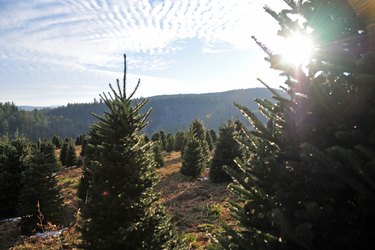
For many, choosing a real Christmas tree from a tree farm is the event that kicks off the Christmas season. Selecting a live tree is a fun activity for the family, and you get to enjoy the fresh pine scent throughout the holiday season.
There are some downsides, however. Eventually, the live tree will dry out and become a fire hazard. It will also experience needle loss, which is not particularly fun to clean up. Position your tree away from heat sources such as fireplaces, radiators and other heaters. Make sure your cut tree always has plenty of fresh water.
Video of the Day
Video of the Day
Opinions vary when it comes to the usefulness of additives such as an aspirin tablet in your Christmas tree's water. Some swear that it keeps it fresher longer, but Christmas tree experts at the National Christmas Tree Association state that there is no evidence supporting this notion. In fact, they advise against adding aspirin, bleach and fertilizers to your cut Christmas tree water. They do, however, offer other tips for keeping your Christmas tree fresh.
Buy a fresh-cut tree
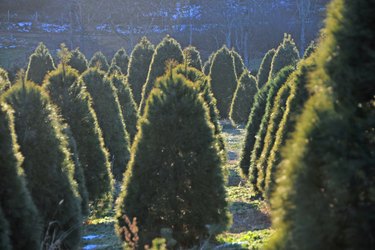
The National Christmas Tree Association recommends buying a tree within three to six hours of its being cut. After this time, the pores in the tree's stump will allow air into the tree, reducing its ability to absorb water.
However, since many people purchase trees that have been sitting for days, if not weeks, in tree lots, the Association also recommends cutting a half inch off the end of the base of the tree just before placing it in water. The freshly cut stump will allow the tree's pores to increase their water intake.
Keep it watered
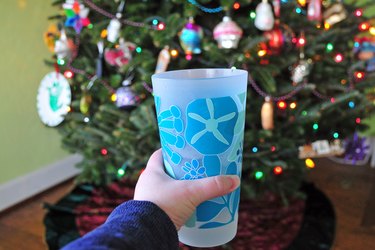
The simplest way to keep your tree fresh for as long as possible is to make sure that it always has water. Use a large-capacity tree stand that will hold at least a gallon of water. Check the water level every day, as Christmas trees tend to drink lots of water, especially during the first week you have it.
The average Christmas tree, adds the National Christmas Tree Association, "can use up to one quart of water per day for each inch of stem diameter."
Ensure a proper tree stand fit
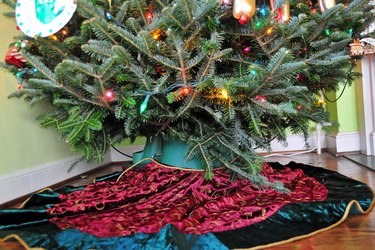
Some folks have Christmas tree stands with slots for the tree's stump that are just too small for the tree they have purchased. The tendency, in these cases, is to trim back the sides of the stump to make the tree fit into the stand.
The National Christmas Tree Association cautions against this, encouraging the matching of tree trunk diameter to the tree stand. The stand should neither be too large nor too small. Cutting back or trimming the sides of the stump decreases the tree's ability to absorb water.
Take extra measures
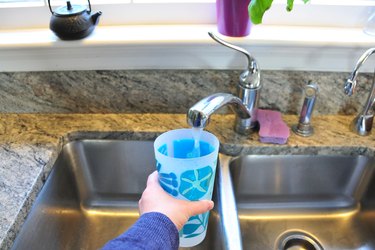
If you've made sure to trim the bottom of the tree's stump and kept your tree freshly watered in the appropriately sized stand, but your tree is still not absorbing water, try adding hot water next time you water it. The National Christmas Tree Association advises that hot tap water will sometimes encourage a sluggish tree to absorb more water.
The Association also encourages you to be patient if your tree doesn't seem to soak up water right away. Ironically, the freshest trees (especially those cut by the tree owner) often don't absorb water right away, as they have not had time to start drying out. Judge your tree's freshness by its needle retention rather than by the level of water in the stand.
- University of Illinois Extension: Christmas Trees & More, Selection and Care
- Don Vandervort’s Home Tips: How to Make Your Christmas Tree Last
- Michigan State University Extension: Making Your Real Christmas Tree Last Through the Holidays
- National Christmas Tree Association: Frequently Asked Questions